Protesting the housing crisis in Cork in 2019. We still have a housing crisis.
| Aperture | ƒ/8 |
| Camera | ILCE-7M3 |
| Focal length | 35mm |
| ISO | 1000 |
| Shutter speed | 1/500s |
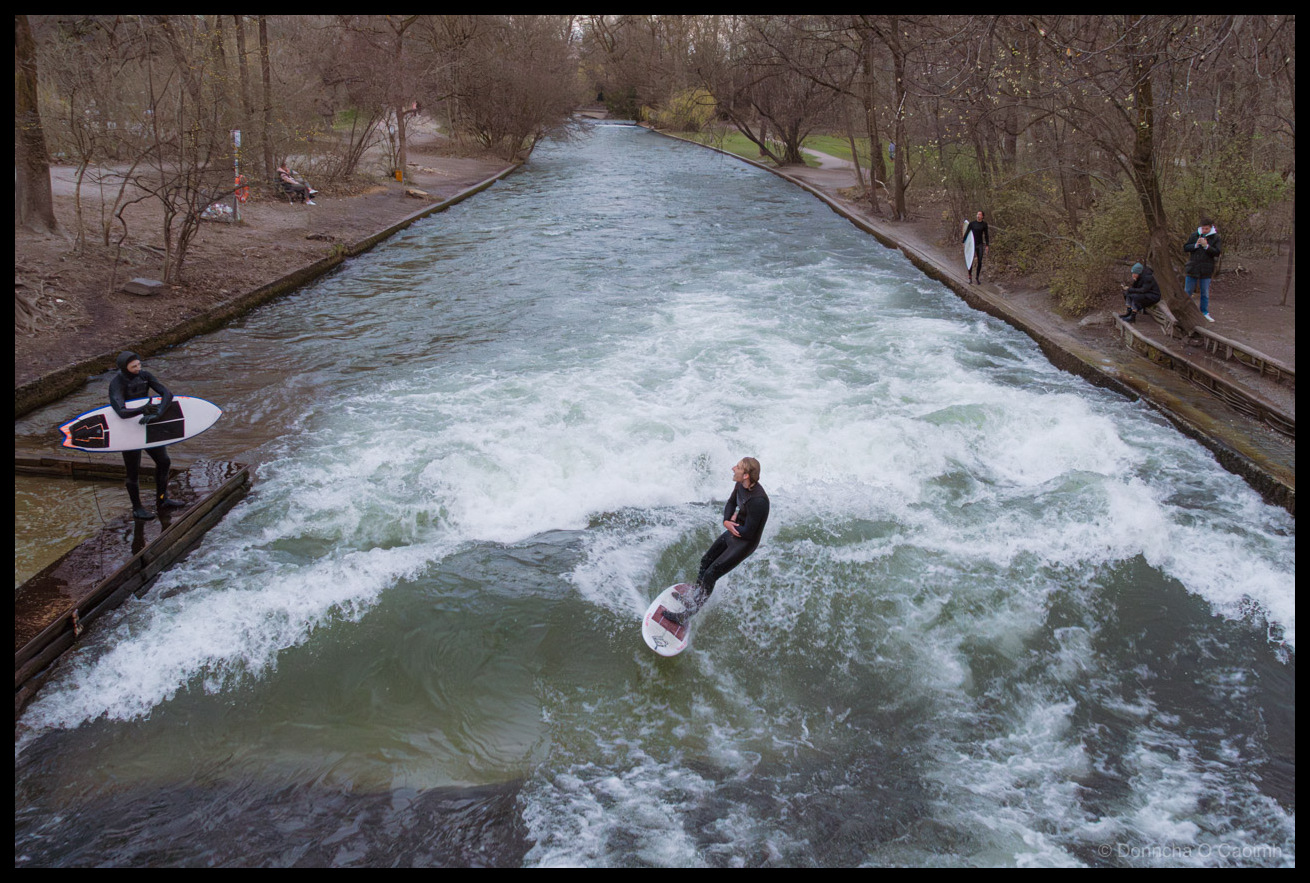
Surfers on the Isar or Eisbach canal in Munich, Germany. It was bizarre seeing people surfing in the middle of a city but the river was perfect for it. Unfortunately, the wave seems to have disappeared recently and they don’t know why.
| Aperture | ƒ/8 |
| Camera | ILCE-7M3 |
| Focal length | 25mm |
| ISO | 12800 |
| Shutter speed | 1/250s |
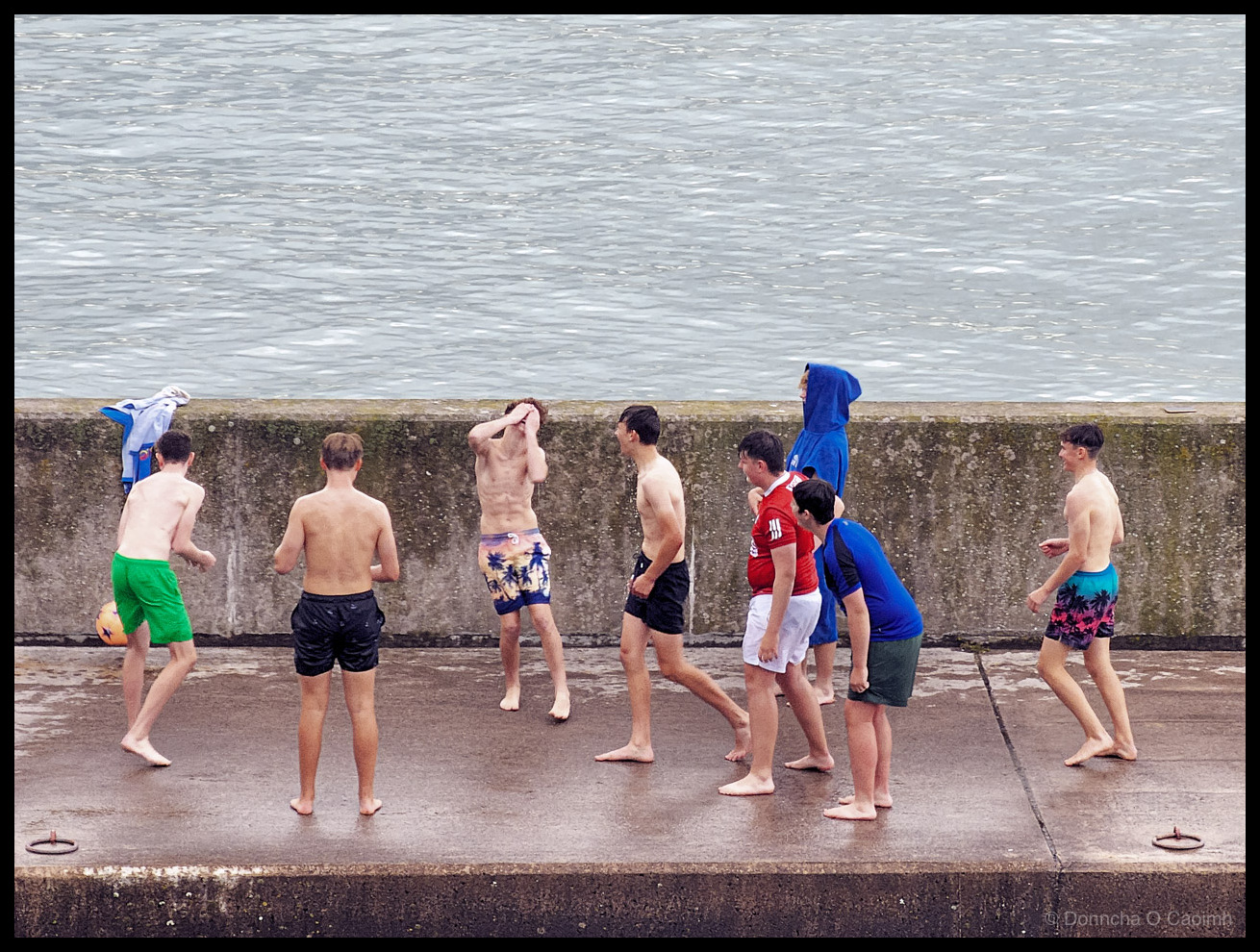
In the middle of July when Ireland was moderately warm and the sea was, if not warm, ok to swim in for a few minutes at a time. A bunch of lads were jumping off the pier at Ardmore Boat Cove, but when we walked by, they were playing football and I think one team had scored a goal a moment before. 🙂
| Aperture | ƒ/4.9 |
| Camera | Galaxy S23 Ultra |
| Focal length | 27.2mm |
| ISO | 100 |
| Shutter speed | 1/100s |
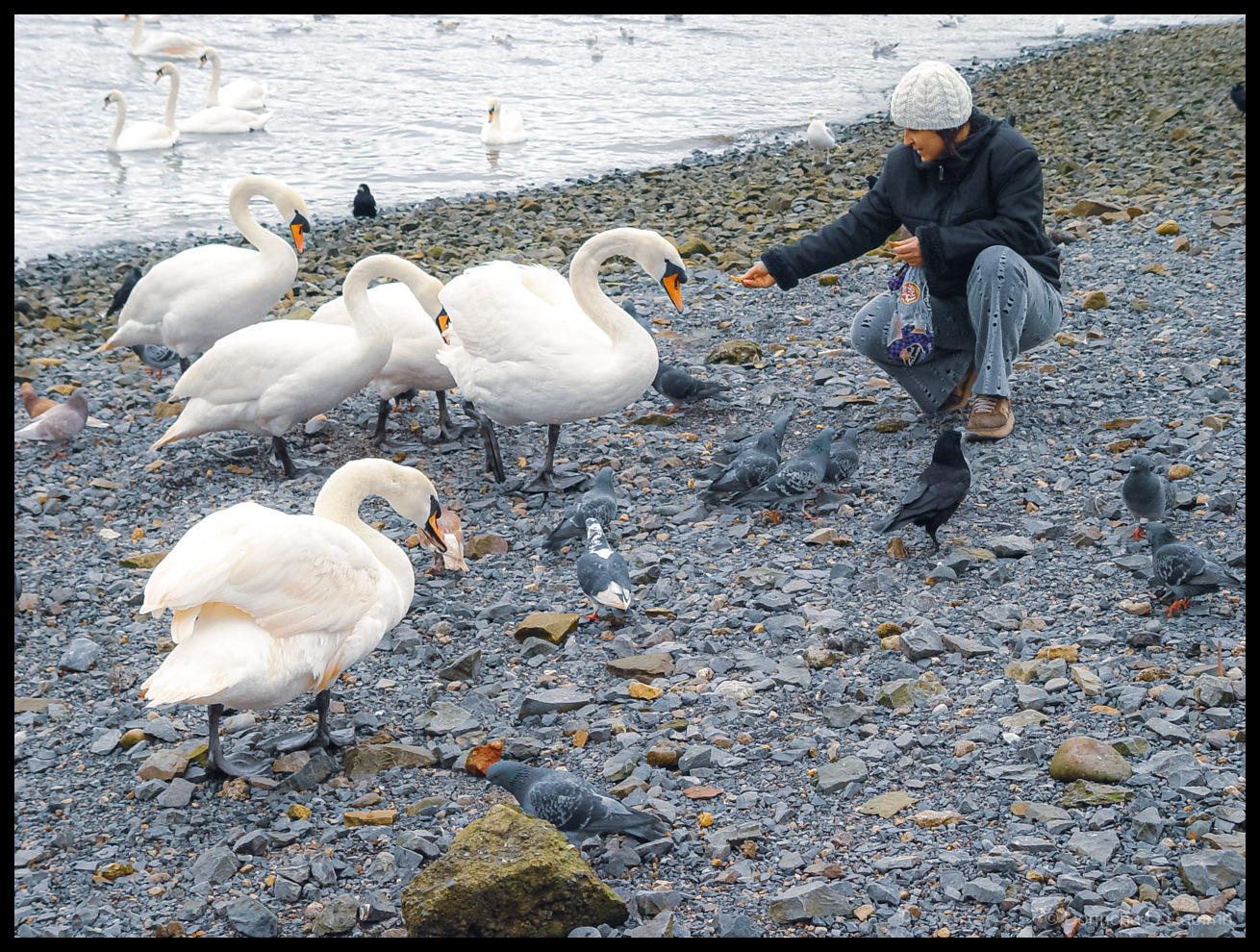
If you’ve ever wandered down to the Claddagh in Galway, you’ll know the swans are less “graceful wild creatures” and more “assertive locals who know exactly when the bread’s coming out.”
That’s what happened on this day in 2005 when we visited and saw a young woman feeding those swans. Other birds wanted crumbs of bread too! Now we know that bread is not an ideal food for birds. Green vegetables are better for them.
| Aperture | ƒ/3.5 |
| Camera | CYBERSHOT |
| Focal length | 17.2mm |
| ISO | 100 |
| Shutter speed | 1/125s |
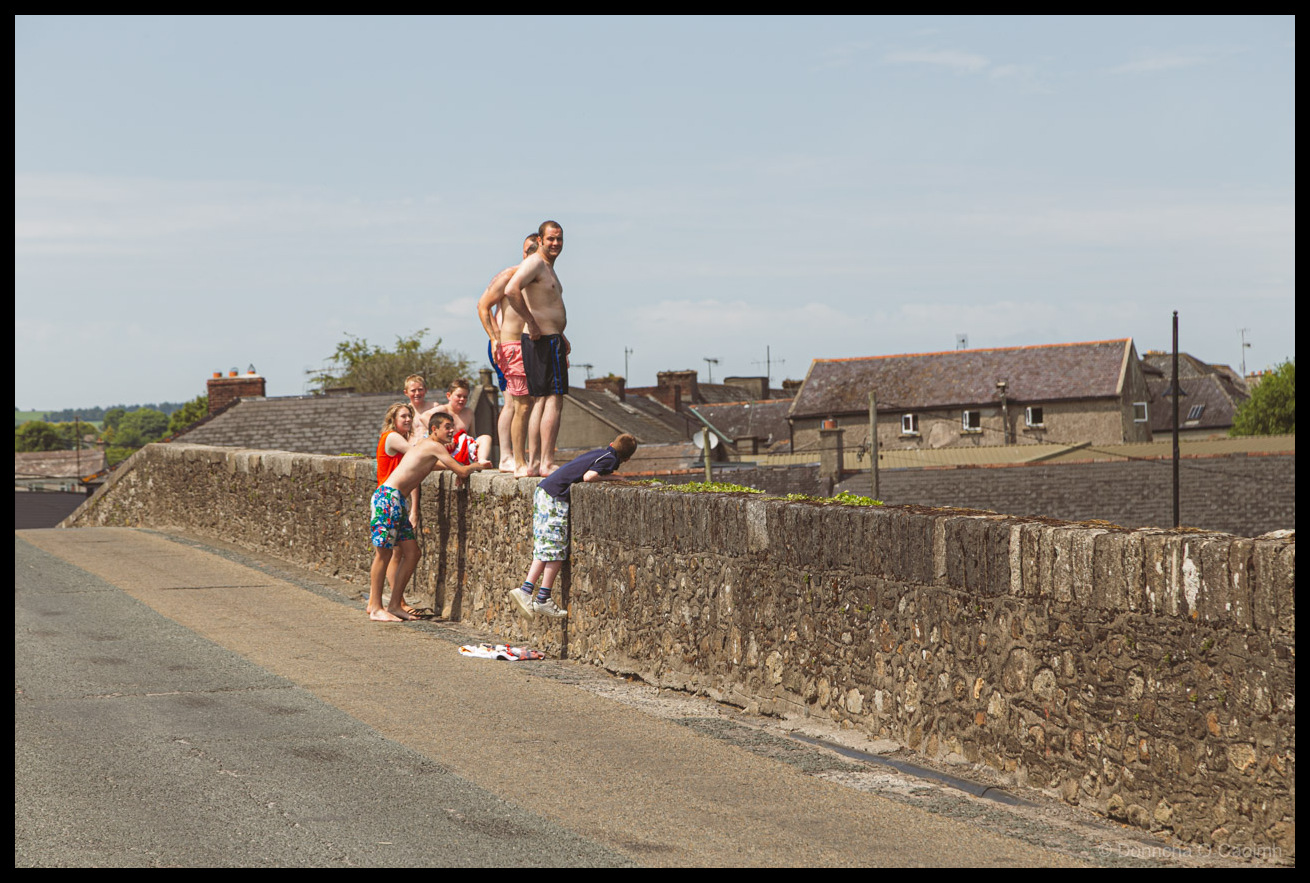
When the rare Irish sun decides to grace Graiguenamanagh with its presence, the locals know exactly what to do: head straight for the old stone bridge over the River Barrow.
At least it was in the summer of 2013. I doubt they’re doing it today, in the middle of December.
| Aperture | ƒ/7.1 |
| Camera | Canon EOS 6D |
| Focal length | 105mm |
| ISO | 100 |
| Shutter speed | 1/320s |
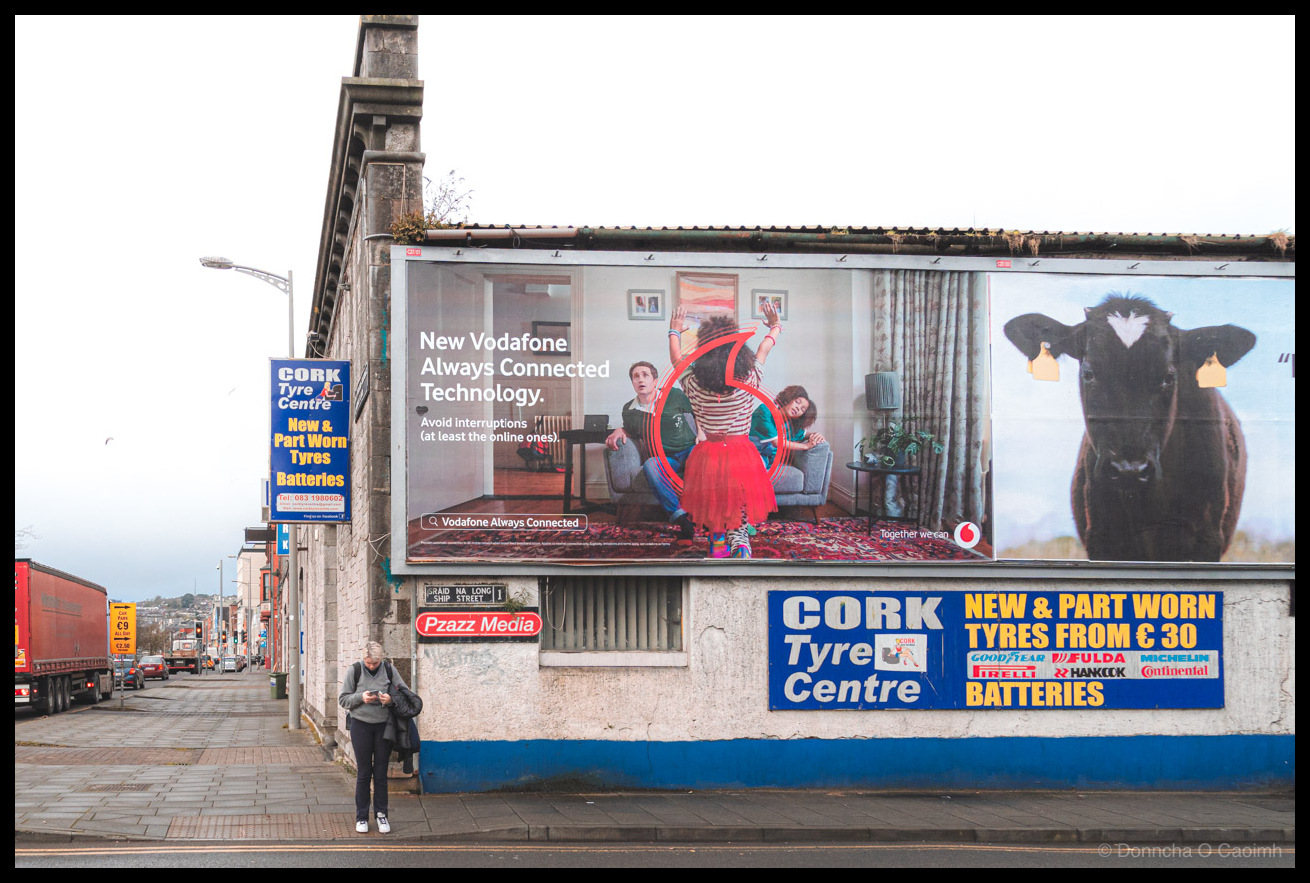
A woman completely absorbed in her phone, standing directly beneath a massive Vodafone billboard promising “Always Connected Technology”. I guess we are always connected. Even if alone.
| Aperture | ƒ/8 |
| Camera | ILCE-7M3 |
| Focal length | 24mm |
| ISO | 1250 |
| Shutter speed | 1/500s |
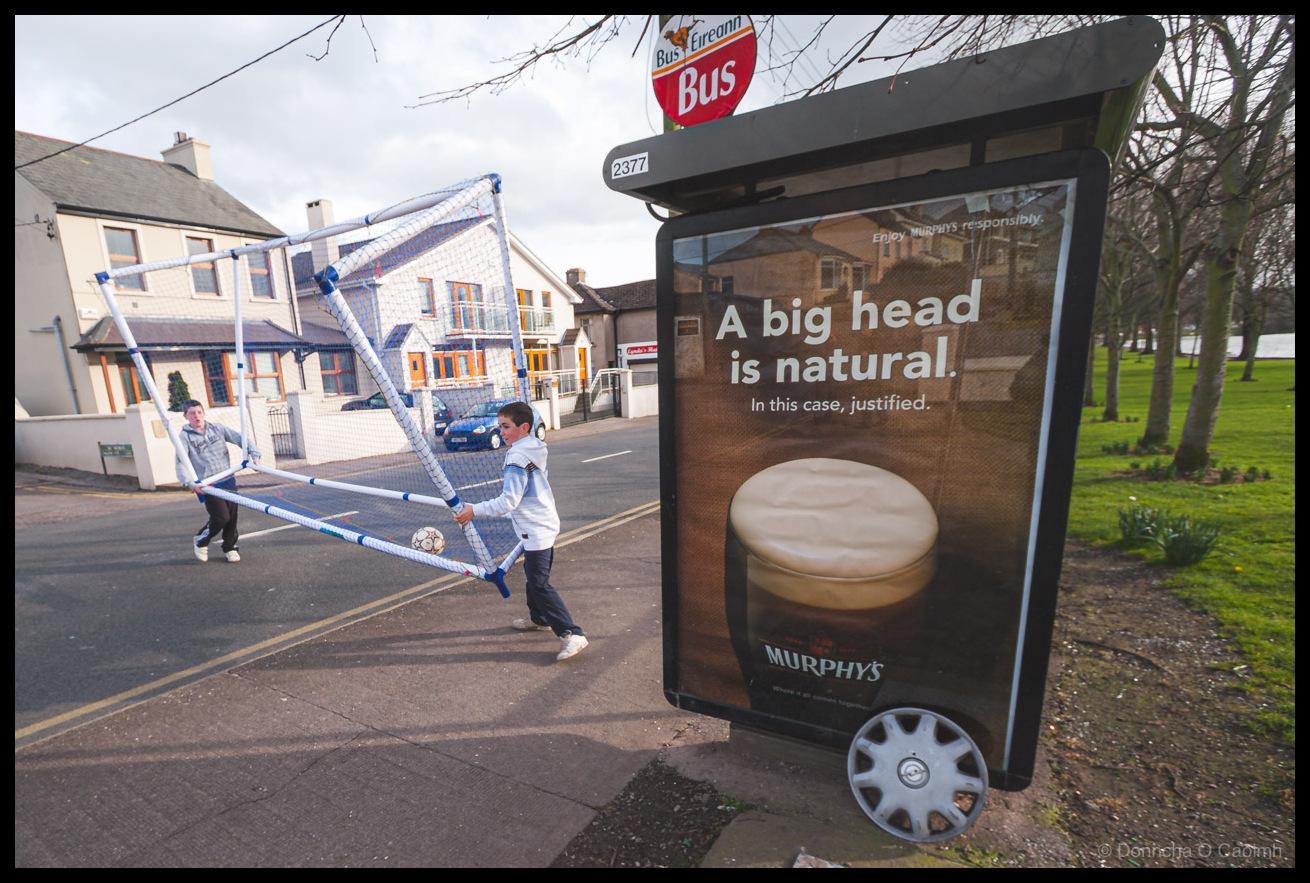
When you want to play a game of football, you need to set your sights high and aim big. No point playing with 2 jumpers for the goalposts when you can bring the real thing from home!
| Aperture | ƒ/6.3 |
| Camera | Canon EOS 20D |
| Focal length | 10mm |
| ISO | 100 |
| Shutter speed | 1/125s |
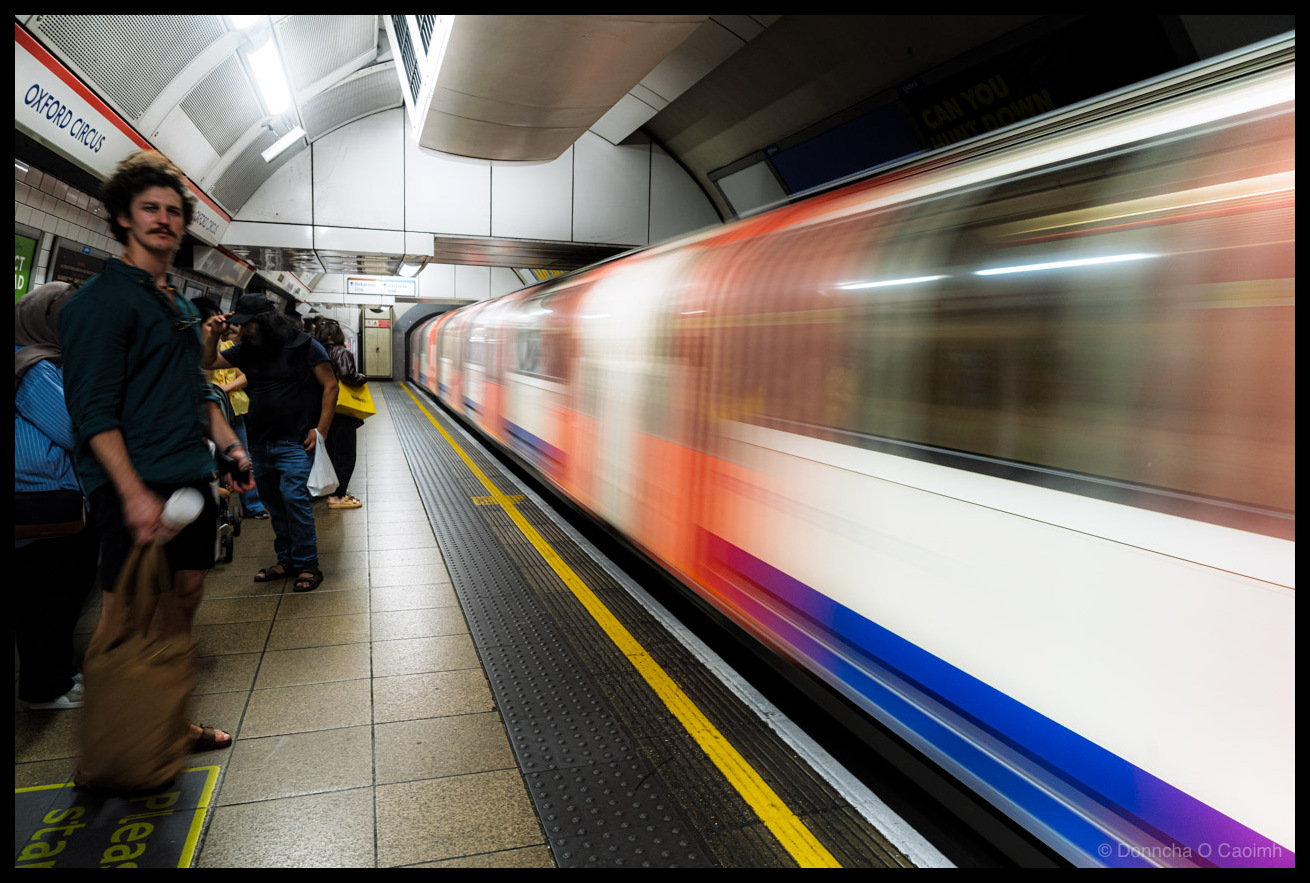
At the end of a day of street photography we took the train back to Liverpool Street Station from Oxford Circus. That of course calls for the obligatory long exposure shot of the train coming into the station.
| Aperture | ƒ/8 |
| Camera | ILCE-7RM5 |
| Focal length | 24mm |
| ISO | 800 |
| Shutter speed | 1/8s |

Last October when Blarney Photography Club visited Killarney to photograph the rutting season this year, we took a break from the deer and some of us went to O’Sullivan’s Cascade. This is the Lakes of Killarney as seen from where that waterfall flows into the lake.
It was a beautiful clear day. The sky might have been a little boring for photography but I loved what I saw there. Especially when I saw how the sunlight caught a rock in the water. The hills in the background disappear into the distance like a painting. Quite a remarkable day.
Videos and Links
I love Alex Webb’s photos. Here’s his 2026 calendar.
| Aperture | ƒ/11 |
| Camera | ILCE-7RM5 |
| Focal length | 24mm |
| ISO | 100 |
| Shutter speed | 1/50s |
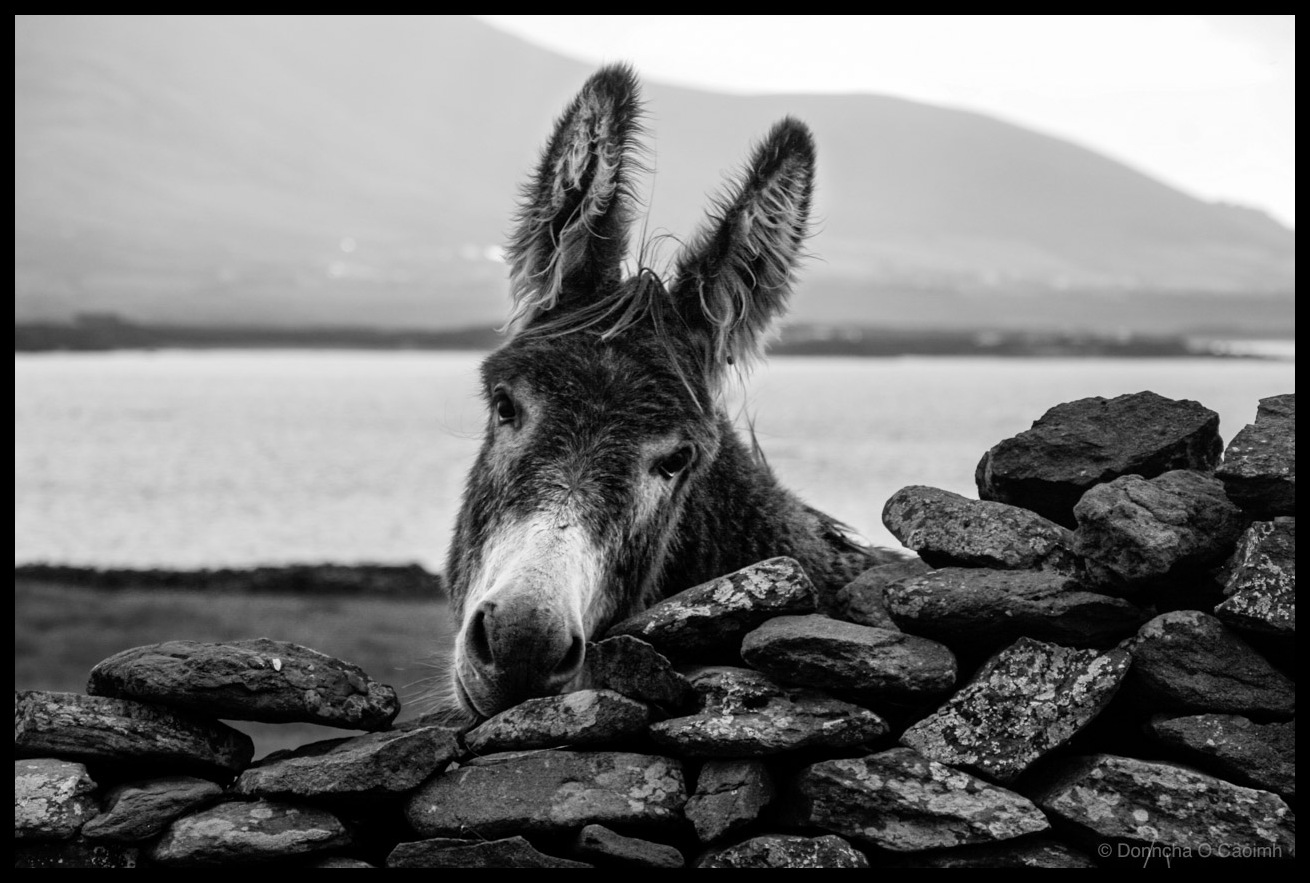
Many years ago while travelling on the Dingle Peninsula we came across a donkey in a field in Muiríoch. I posted a photo of him in 2007 and again in 2008 but I happened to come across this photo of him and did a little work on the photo.
There’s a chance this donkey is still alive. Hopefully he’s well cared for and enjoying his elder years.
| Aperture | ƒ/8 |
| Camera | Canon EOS 20D |
| Focal length | 125mm |
| ISO | 100 |
| Shutter speed | 1/250s |